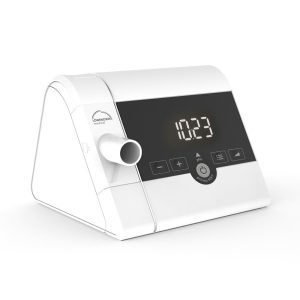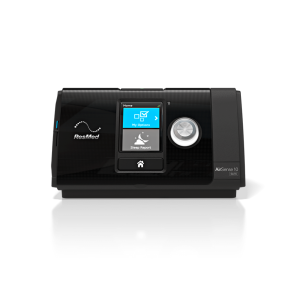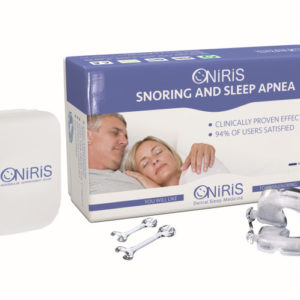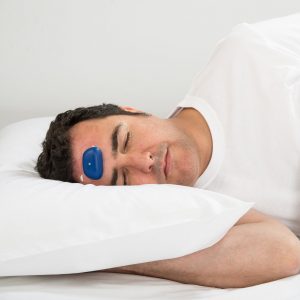Fact Checked
Intus Healthcare’s writers, customer service team, and sleep experts review and ensure this information is accurate.
Last updated on September 5th, 2023 at 04:01 pm
Can Sleep Apnoea affect your memory?
Memory loss is a symptom of the common sleep disorder Obstructive Sleep Apnoea (OSA).
People with Sleep Apnoea often experience difficulty concentrating, forgetfulness, and difficulty with problem-solving. Sleep deprivation caused by Sleep Apnoea can also cause decreased alertness and impair cognitive performance, which can make it difficult to remember things and focus.
During deep sleep, our brains process our memories collected from the day. It is in this stage of deep sleep that OSA impacts your memory. Studies have shown that effective treatment such as CPAP therapy can repair the damage(1).
How Does Sleep Apnoea Cause Memory Problems?
OSA is a sleep disorder where your airway closes during sleep. Studies show that there is a connection between OSA and Alzheimer’s (2).
When OSA disrupts your deep sleep, your memory is affected. The breathing pauses and reductions in airflow stop oxygen from reaching your brain. Your brain reacts to the drop in oxygen by waking you up repeatedly throughout the night. The constant reduction in oxygen levels decreases memory, concentration and brain performance.
Researchers found in 42 studies investigating memory performance and Obstructive Sleep Apnoea: That those with untreated OSA were significantly impaired compared to those with treated OSA(3).
Due to poor memory and brain fog, many people with untreated OSA suffer from poor mental health and mood swings. Around 85% of people with OSA do not know they have it(4).
How much does Sleep Apnoea affect memory?
The impact Sleep Apnoea has on memory will vary from person to person. However, research has shown that people with OSA tend to have lower scores on memory tests compared to those without the disorder(5). Additionally, research has found that treatment of OSA can help improve memory and concentration(6). Reduced sleep caused by sleep disorders can increase the chance of cognitive decline and increase the likelihood of developing Alzheimer’s(7).
Does Sleep Apnoea Lead to Dementia and Alzheimer’s?
Here’s what research shows:
- People with sleep disorders are 26% more likely to develop cognitive impairment than those without(8).
- Those with a sleep disorder are at a 1.55 higher risk of cognitive decline and Alzheimer’s(9).
- A study found that those who experience less REM sleep are at an increased risk of developing Alzheimer’s(7).
- It is estimated that around 40% of dementia cases are believed to be attributable to potentially modifiable risk factors, including untreated OSA(10).
Fortunately, there are treatments for Obstructive Sleep Apnoea that can prevent cognitive decline.
Sleep Apnoea treatments that help your memory
You may be wondering how you can treat the symptoms of Sleep Apnoea to reduce memory loss. Lifestyle changes are recommended as they are effective in treating the symptoms of OSA . These include:
Lifestyle changes do not always eliminate Sleep Apnoea but can help reduce symptoms. If you require medical interventions to control and reduce the symptoms and have been confirmed as having OSA, then depending on the severity of your condition, the following treatments can be considered.
- CPAP therapy: A CPAP machine ) is the most common and effective treatment for OSA. The device opens your airway by supplying air pressure via a CPAP tube and CPAP mask.
- Mandibular Advancement Devices: Also known as oral appliances or mouth guards are designed to open your airway to prevent apnoea events.
- Positional sleep therapy trainer: A small device that vibrates when you turn on your back to encourage sleeping on your side to prevent breathing pauses.
- Surgery for Sleep Apnoea: Uvulopalatopharyngoplasty (UPPP)is the most common form of surgery for OSA.
Please note that treatment for your OSA depends on your severity and what your healthcare provider suggests.
Research indicates that the average adult should get around 7-9 hours of sleep every night(11). Getting a sufficient amount of sleep also benefits metabolism and cardiovascular health.
Round Up
To get the sleep you deserve and help prevent memory loss, ensure your Sleep Apnoea is treated.
OSA is a common sleep disorder that affects 1.5 million people in the UK and more than 936 million worldwide.
Take our In-Home Sleep Test if you recognise any symptoms in yourself. You will receive your results from our sleep experts within 7-10 working days. Our sleep test also provides you with follow-up guidance on your treatment options.
If you need any more advice, please contact us.
Related pages:
The link between Sleep Apnoea and mental health
REFERENCES
- Djonlagic, I. E., Guo, M., Igue, M., Kishore, D., Stickgold, R., & Malhotra, A. (2021). Continuous positive airway pressure restores declarative memory deficit in obstructive sleep Apnoea. American Journal of Respiratory and Critical Care Medicine, 203(9), 1188–1190. Available at: https://doi.org/10.1164/rccm.202011-4253le. Accessed: 23.08.23
- Andrade, A. G., Bubu, O. M., Varga, A. W., & Osorio, R. S. (2018). The relationship between obstructive sleep apnea and Alzheimer’s disease. Journal of Alzheimer’s Disease, 64(s1). https://doi.org/10.3233/jad-179936. Accessed: 23.08.23
- Wallace, A., & Bucks, R. S. (2013). Memory and obstructive sleep apnea: A meta-analysis. SLEEP. https://doi.org/10.5665/sleep.2374. Accessed: 23.08.23
- ResMed. (2019, July 30). More than 936 million have obstructive sleep apnoea worldwide. ResMed UK. Available at: https://www.resmed.co.uk/patient/resources/sleep-apnoea-blog/936-million-have-osa-worldwide/
- Yaffe, K., Laffan, A. M., Harrison, S. L., Redline, S., Spira, A. P., Ensrud, K. E., Ancoli-Israel, S., & Stone, K. L. (2011). Sleep-disordered breathing, hypoxia, and risk of mild cognitive impairment and dementia in older women. JAMA, 306(6). Available at: https://doi.org/10.1001/jama.2011.1115. Accessed: 23.08.23
- Djonlagic, I. E., Guo, M., Igue, M., Kishore, D., Stickgold, R., & Malhotra, A. (2021). Continuous positive airway pressure restores declarative memory deficit in obstructive sleep apnea. American Journal of Respiratory and Critical Care Medicine, 203(9), 1188–1190. Available at: https://doi.org/10.1164/rccm.202011-4253le. Accessed: 23.08.23
- Pase, M. P., Himali, J. J., Grima, N. A., Beiser, A. S., Satizabal, C. L., Aparicio, H. J., Thomas, R. J., Gottlieb, D. J., Auerbach, S. H., & Seshadri, S. (2017). Sleep architecture and the risk of incident dementia in the community. Neurology, 89(12), 1244–1250. Available at: https://doi.org/10.1212/wnl.0000000000004373. Accessed: 23.08.23
- Leng, Y. et al. (2017) ‘Association of sleep-disordered breathing with cognitive function and risk of cognitive impairment’, JAMA Neurology, 74(10), pp. 1237–1245. doi:10.1001/jamaneurol.2017.2180. Accessed: 23.08.23
- Bubu, O.M. et al. (2016) ‘Sleep, cognitive impairment, and Alzheimer’s disease: A systematic review and meta-analysis’, Sleep, 40(1). doi:10.1093/sleep/zsw032. Accessed: 23.08.23
- Legault, J. et al. (2021) ‘Obstructive sleep apnea and cognitive decline: A review of potential vulnerability and protective factors’, Brain Sciences, 11(6), p. 706. doi:10.3390/brainsci11060706. Accessed: 23.08.23
- Badr, M.S. et al. (2015) ‘Recommended amount of sleep for a healthy adult: A joint consensus statement of the American Academy of Sleep Medicine and Sleep Research Society’, SLEEP, pp. 843–844. doi:10.5665/sleep.4716. Accessed: 23.08.23









